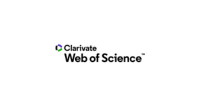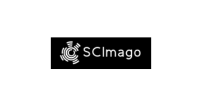HORMÔNIO CORIÔNICO GONADOTRÓFICO (hCG) NA INDUÇÃO DO CORPO LÚTEOACESSÓRIO E SUA RELAÇÃO COM A CONCENTRAÇÃO DE PROGESTERONA PLASMÁTICA EM BOVINOS DE CORTE
DOI:
https://doi.org/10.5380/avs.v9i1.4055Palavras-chave:
hCG, corpo lúteo acessório, progesterona, accessory CL, progesterone.Resumo
No experimento foram utilizados 62 animais da raça Charolesa e Caracú, e inseminados artificialmente (IA). No 7o dia após a IA, as vacas foram divididas aleatoriamente em 2 grupos: tratado (n=32), que recebeu 2.500 UI de hormônio coriônico gonadotrófico (IM) e controle (n=30), que recebeu 1 ml de solução fisiológica estéril, (IM). Verificou-se ultrassonograficamente a localização e o diâmetro: do corpo lúteo do cio base (CLCB) no 7o e 13o dia após a IA, do folículo dominante (FD) da primeira onda no 7o dia, do corpo lúteo acessório (CLA), e do FD da segunda onda folicular. Coletaram-se amostras sanguíneas no 7o, 13o e 24o dia após a IA para a determinação da concentração de progesterona plasmática (P4) pelo método da quimioluminescência. Foram obtidos os resultados: Trinta e um animais (96,87%) desenvolveram um CLA após a aplicação do hCG. O diâmetro do CLCB e do FD no dia 7 e 13 após a IA, não diferiram entre os grupos (P>0,05). A concentração de P4 no dia 7 não diferiu (P>0,05) entre os grupos, porém no dia 13 (P<0,0001) e 24 (P<0,05) observou-se diferença. Concluiu-se que o tratamento com o hCG provocou a ovulação do FD da primeira onda folicular; o CLA apresentou um diâmetro menor do que o CLCB do mesmo período (P<0,0001). Ocorreu significativo aumento na concentração de P4 no dias 13 (P<0,0001) e 24 (P<0,05) após a IA nos animais tratados em relação aos controles.
Inducion of accessory Corpus luteum by human chorionic gonadotropin (hCG) and the relationship with progesterone concentrations in cattle
Abstract
In the present experiment 62 cows of the Charoles and Caracu breeds were artificially inseminated (AI) and aleatoryly divided in two groups at the 7th day after the insemination. The experimental group (n = 32) has been tretaed with intramuscular administration of 2500 IU of human chorionic gonadotrophin (hCG) and the control group (n=30) with 1.0 ml of intramuscular sterile physiologic solution. Scanning ultrasound was performed at the 7th and 13th day in order to access the location and size of the estrus corpus luteum (CL), the dominant follicle (DF) of 1st and 2nd follicular wave at 7th and 13th day, respectively, as well as the diameter of accessory CL. Blood samples were collected at 7th, 13th and 24th days after AI for progesterone (p4) assay by chemiluminescent immunoassay. Results. A total of 31 cows (96.8%) developed an accessory CL after hCG administration. No differences has been found (P<0.05) among the experimental groups on the CL diameter from the basis estrum, DF of 1st and 2nd follicular wave after 7th and 13th days after AI. The diameter of the accessory CL at 13th day after AI was different (P<0.05) from the CL of the estrum with the same age in the treated group. Progesterone concentrations did not differ at the 7th day (P<0.05) between the groups, being however different at the13th day (P<0.0001) and at the 24th day (P<0.05) after AI. Conclusions. Treatment with hCG stimulated DF ovulation of 1st follicular wave. Accessory Cl displayed fewer diameters than CL from the basis estrum with the same age (P<0.0001). Progesterone concentrations displayed an increase at the 13th (P<0.0001) and 24th (P<0.05)days after AI in treated cows in regard to the values found in the control cows.
Downloads
Como Citar
Edição
Seção
Licença
Autores que publicam nesta revista concordam com os seguintes termos:
- Autores mantém os direitos autorais e concedem à revista o direito de primeira publicação, com o trabalho simultaneamente licenciado sob a Creative Commons - Atribuição 4.0 Internacional que permite o compartilhamento do trabalho com reconhecimento da autoria e publicação inicial nesta revista.
- Autores têm autorização para assumir contratos adicionais separadamente, para distribuição não-exclusiva da versão do trabalho publicada nesta revista (ex.: publicar em repositório institucional ou como capítulo de livro), com reconhecimento de autoria e publicação inicial nesta revista.
- Autores têm permissão e são estimulados a publicar e distribuir seu trabalho online (ex.: em repositórios institucionais ou na sua página pessoal) a qualquer ponto antes ou durante o processo editorial, já que isso pode gerar alterações produtivas, bem como aumentar o impacto e a citação do trabalho publicado.













